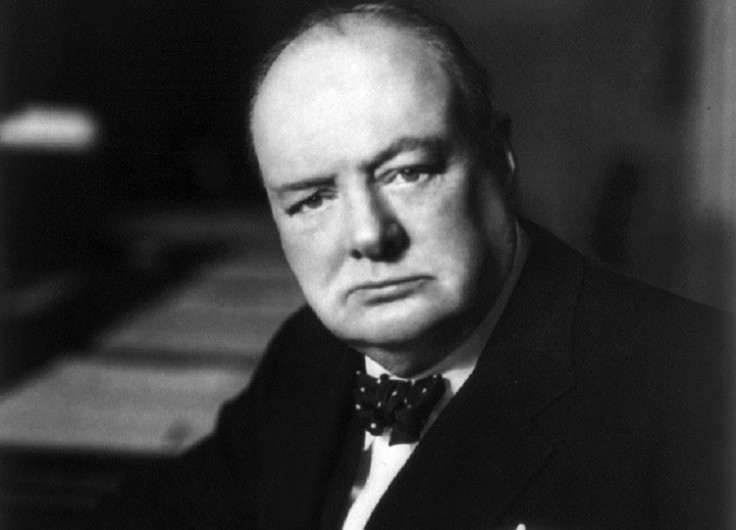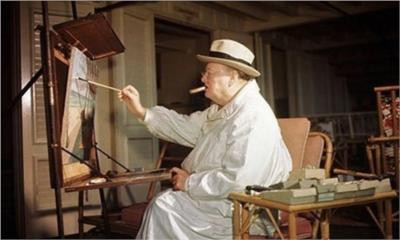Winston Churchill Day: Strange Facts about British Bulldog who Led Britain to Victory

Widely regarded as one of the greatest wartime leaders of the 20th century, Winston Churchill was the first foreign national to be made an honorary citizen of the United States. The day named after him has been celebrated every 9 April since 1963 and marks the moment he was granted citizenship of eight individual states as a prelude to full citizenship, including New Hampshire, West Virginia and Maryland.
Churchill served as Britain's prime minister from 1940-45 and again from 1951-55 and to many led Britain to victory over Nazi Germany. Yet there was another side to him and away from politics he had many interests including painting and literature.
Speech impediment
Churchill suffered from a speech impediment, similar to his father. He rehearsed phrases such as "The Spanish ships I cannot see for they are not in sight" which was intended to cure him of his problem. Despite his impediment, he became a great public speaker and announced in one political speech that his impediment was "no hindrance".
Prisoner of War
In 1899, Churchill escaped a prisoner of war camp after he had been captured while working as a correspondent in South Africa during the Boer War. The bounty on his head was £25 . He had been in captivity for four weeks when he vaulted over a wall into a neighbouring property and hitched rides on trains towards Lourenco Marques. Eventually, he contacted the British consul and established his identity, and then travelled on a steamship down the coast to Durban, the main port of Natal.

Painting
Churchill was a prolific painter, who produced nearly 600 works of art during his lifetime. Sarah Thomas, of Sotheby's told the BBCthat he took up painting very late as he "found relief from all the pressures of his work in his painting".
In December 2006, his painting View of Tinherir, completed in 1951, sold at auction for £612,800. Yet according to Thomas, his paintings varied in quality and some are "pretty poor and amateur and full of splodges".
Gorilla warfare
According to his nephew, John Spencer Churchill, Winston did a good gorilla impression. In his 1961 book, Crowded Canvas, John wrote: "Few people can say they have seen the ex-First Lord of the Admiralty, crouching in the branches of an oak, baring his teeth and pounding his chest."
Not an academic
As a schoolboy, Winston Churchill did not shine academically. He was often in the bottom half of classes and examinations at Harrow and was punished by teachers for having a rebellious streak. His father, recognising Churchill's passion for toy soldiers, sent him to Sandhurst Military Academy - although it took him three attempts to pass the entrance examination.
Chart hit
In 1965, Churchill became the first prime minister to enter the album chart posthumously with The Voice of... set of speeches and memoirs from 1918 to 1945. He entered the charts for a second time in October 2010, with a record marking the 70th anniversary of the Battle of Britain called Reach for the Skies, by the RAF's Central Band.
Nobel Prize
Churchill won the Nobel prize for literature in 1953, beating EM Forster and Ernest Hemingway. The Nobel committee considered Churchill several times after the end of World War II, but the area of historial writing gained little literary support.
His previous 1899 novel Savrola was considered to be "without literary merit". When he won the prize, however, he was praised for his six-volume history The Second World War and for his "mastery of historical and biographical description as well as for brilliant oratory in defending exalted human values".
Bribery
Churchill often appeared in public with a cigar in his mouth - but this was not condoned by his mother, Lady Randolph Churchill. When he was 15, she tried to force him to give up the habit. A letter read: "If you knew how foolish & how silly you look doing it you would give it up, at least for a few years." Yet she didn't just rely on rhetoric. If Churchill would give up smoking for six months, she'd get him a gun and a pony, she said. He agreed to this deal - but soon went back to smoking the cigars that are now named in his honour.
Man of the Year
He was named Time magazine's Man of the Year twice - in 1940 and again in 1949. On his second time receiving the accolade, he was named Man of the Half-Century. You can see the cover of Time for the January 1941 edition here.
© Copyright IBTimes 2025. All rights reserved.






















